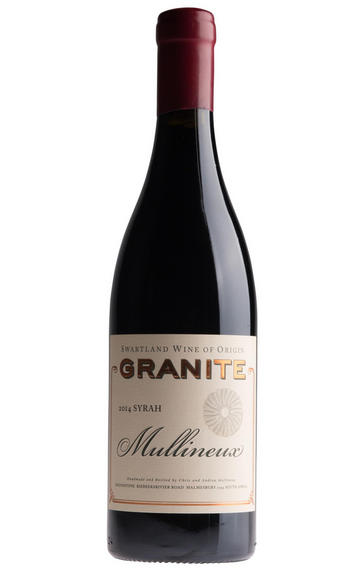
2011 Mullineux, Granite Syrah, Swartland, South Africa
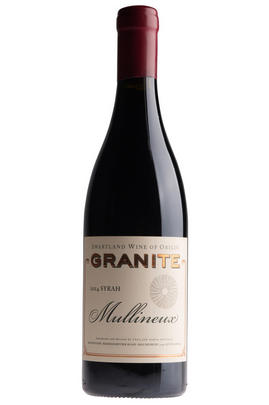
Critics reviews
Neal Martin - Wine Advocate - Issue#209 Oct 2013
About this WINE
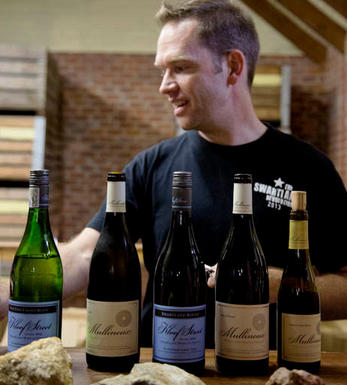
Mullineux & Leeu Family Wines
Mullineux & Leeu Family Wines is one of the stand-out producers in South Africa's budding Swartland region. Winemakers Chris and Andrea Mullineux’s ambition is to bottle wines that are a true expression of the Swartland, and all steps of their winemaking process are taken with this in mind. They work closely with a select group of growers who follow sustainable, reasoned farming practices, as well as owning vineyards at their Roundstone Farm in Riebeeksrivier.
In the cellar, apart from minimal amounts of sulphur, nothing is added to or removed from the wine. They do not make use of any yeasts, acids, tannins, enzymes, or fining and filtering agents. “Leeu” (Afrikaans for “lion”) was added to the name recently to recognise the contribution of a new investor to the project.
Apart from their wonderful Syrah, Chenin Blanc-based white blend and a super-rich Straw Wine made from air-dried Chenin Blanc, fermented and matured in old barriques, Mullineux now has a range of spectacular single-terroir Syrah and Chenin Blanc wines, each of which illustrates the amazing potential of the differing Swartland soils. Volumes of the single-vineyard wines are tiny, so availability is extremely limited.
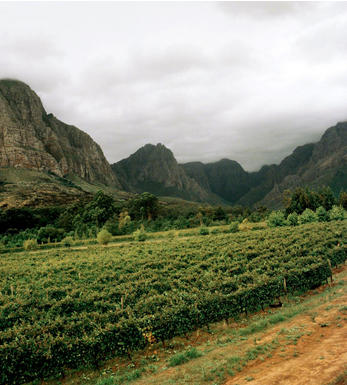
Swartland
After Stellenbosch, the west coast district of Swartland (25 miles due north of Cape Town, between the towns of Malmesbury and Piketberg) now ranks as the Cape's most exciting wine-producing district.
Settled initially by nomadic Khoikhoi from Namibia, the Dutch brought trade and vines to the region in the 17th century. Viticulture was developed only more recently.This contrasts with an ancient geology which has brought a mix of shale, arenite sandstone and granite soils air-conditioned by the Atlantic Ocean nearby.
Chenin Blanc and Shiraz seem to do best, as exemplified by the wines of Eben Sadie and Mullineux.
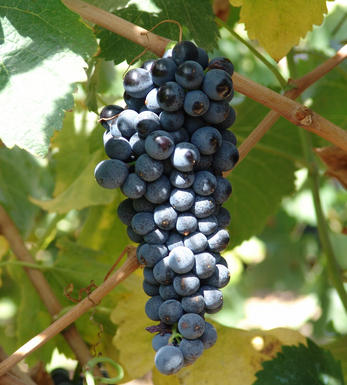
Northern Rhône blend
A Northern Rhône blend is a wine made from grapes grown in the northern part of the Rhône Valley in France. This region is known for producing some of the world’s most acclaimed and distinctive wines.
The red blends typically revolve around the Syrah (Shiraz) grape. These wines are known for their deep colour, complex aromas of dark fruits, black pepper, floral notes, and a firm tannic structure. The most famous appellations for these wines include Côte-Rôtie, Hermitage, and Cornas. Côte-Rôtie often incorporates a small percentage of Viognier, adding floral and aromatic elements to the wine.
In the Northern Rhône, Viognier is the primary white grape variety. Viognier-based wines from appellations like Condrieu are highly aromatic, with flavours of stone fruits, floral notes and sometimes a hint of spice. These wines are often full-bodied and have a luxurious texture.
A unique characteristic of some Northern Rhône red wines is the co-fermentation of Syrah and Viognier grapes. This process involves fermenting the two grape varieties, resulting in wines seamlessly integrating Viognier’s aromatic qualities with Syrah’s structure and depth.
Northern Rhône blends are celebrated for their elegance, complexity, and terroir-driven characteristics. They are considered some of the finest examples of varietal wines produced in France and are highly sought after by wine enthusiasts and collectors worldwide.


Buying options
Add to wishlist
Description
The 2011 Granite Syrah comes from a parcel of 18-year-old bush vines grown on decomposed granite in the Paardeberg Mountains. Cropped on 2 February, they were “foot-stomped” (to used Chris’s vernacular) in 500-liter open-top barrels where they spend 18 months (50% new.) I feel that the terroir is expressed with greater clarity on the nose, which is not as immediate as the schist, but offers more nuance and complexity. Peer in and your nose picks up hints of terracotta under a baking sun. The palate is edgier than the schist, the acidity slightly more noticeable and lending great tension on the finish. It is slightly more introspective than Chris and Andrea Mullineux’s other wines, but it offers impressive length and wonderful precision. Superb.
Neal Martin - Wine Advocate - Issue#209 Oct 2013
wine at a glance
Delivery and quality guarantee